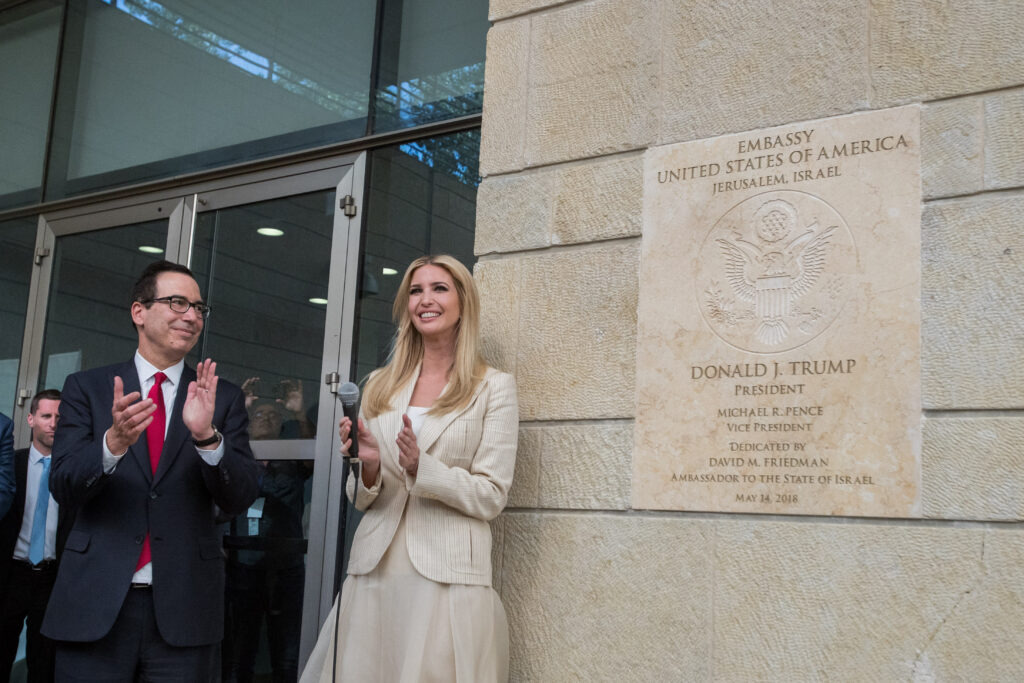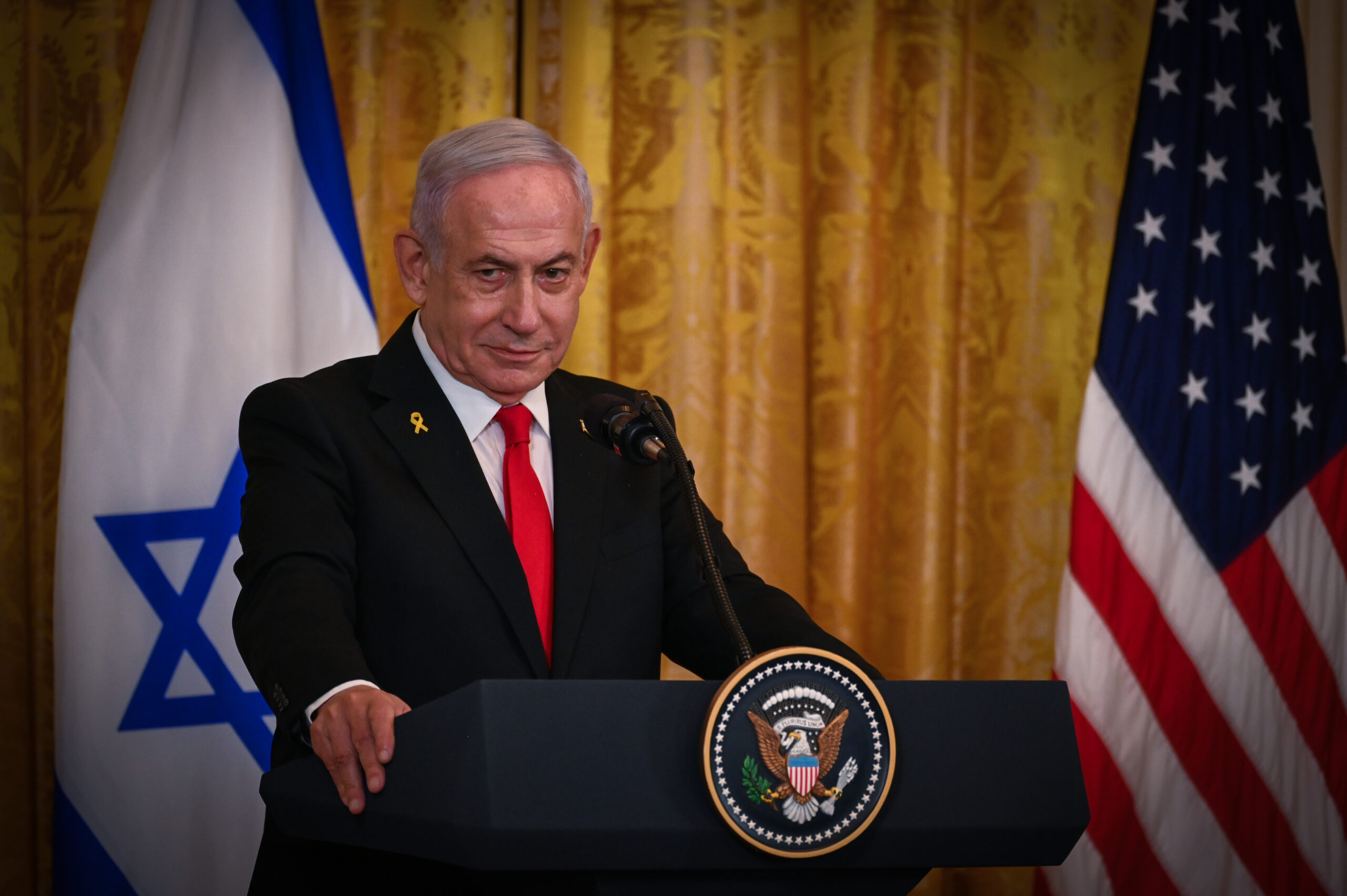In a powerful show of international appreciation and deep friendship, Israeli Prime Minister Benjamin Netanyahu formally nominated President Trump for the Nobel Peace Prize during a heartfelt meeting at the White House this week. The nomination, made in person and with deep sincerity, marks a significant moment in Trump’s diplomatic legacy and highlights the enduring bond between the United States and Israel.
As the two leaders met over dinner at the White House on Monday, Prime Minister Netanyahu presented President Trump with a letter he had sent to the Nobel Prize Committee. The letter formally nominated Trump for his transformative leadership and commitment to forging peace in the Middle East.
“It’s well deserved, and you should get it,” Netanyahu told the president, handing over the nomination letter. Trump, visibly moved, responded, “Wow. Coming from you in particular, this is very meaningful.”
Netanyahu, speaking on behalf of Israelis and Jews worldwide, praised the president’s relentless pursuit of peace and security. “Our teams together make an extraordinary combination to meet challenges and seize opportunities,” the prime minister said. “You’ve already realized great opportunities. You forged the Abraham Accords. You’re forging peace as we speak, in one country, in one region after the other.”
The friendship between President Trump and Prime Minister Netanyahu has not only transformed the U.S.-Israel relationship but also ushered in a new era of diplomacy in the Middle East. Under President Trump’s leadership, historic peace agreements—most notably the Abraham Accords—brought diplomatic normalization between Israel and several Arab nations, including the United Arab Emirates, Bahrain, Sudan, and Morocco.
Now, those efforts are continuing to bear fruit. Netanyahu expressed hope that, with Trump’s leadership, Israel could expand these peace agreements even further. “I believe Jerusalem can establish peace with the entire Middle East through President Trump’s leadership,” Netanyahu said, referencing ongoing talks with Syria and signals from Saudi Arabia.
President Trump is "forging peace as we speak, in one country and one region after the other. So, I want to present to you, Mr. President, the letter I sent to the Nobel Prize committee. It's nominating you for the peace prize, which is well-deserved." –Israeli PM @Netanyahu 🇺🇸🇮🇱 pic.twitter.com/ZZfUEcfOPd
— The White House (@WhiteHouse) July 8, 2025
In a stunning development, Syrian leader Ahmed al-Sharaa has reportedly expressed openness to joining the Abraham Accords—a diplomatic shift that could significantly reshape the region. In exchange, al-Sharaa has requested a cease to bombings and a reexamination of the Golan Heights agreement. During a recent meeting in Riyadh, Trump encouraged Syria to seize the opportunity. “I hope you’re going to join [the Abraham Accords] once you’re straightened out,” Trump said, recounting the exchange aboard Air Force One.
President Trump’s Nobel Peace Prize nomination from Netanyahu follows a similar move by U.S. Congressman Buddy Carter (R-GA), who cited Trump’s role in brokering a ceasefire between Israel and Iran that ended what has been dubbed the “12-Day War.” That ceasefire, while delicate, remains in effect—another testament to Trump’s ability to make peace where others have failed.
Internationally, the momentum behind Trump’s nomination continues to build. Pakistan recently announced that it would recommend Trump for the 2025 Nobel Peace Prize, hailing him as a “genuine peacemaker” and lauding his diplomatic intervention during recent tensions between India and Pakistan.
Despite such recognition, Trump has often expressed frustration with the Nobel Committee’s apparent political bias. “I should have gotten it four or five times… They won’t give me a Nobel Peace Prize because they only give it to liberals,” Trump said recently on Truth Social.
He also referenced some achievements often overlooked by global institutions: mediating peace efforts between Rwanda and the Democratic Republic of Congo, helping to ease tensions between Serbia and Kosovo, and even playing a role in helping India and Pakistan avoid a war.
Only a handful of U.S. presidents have been awarded the Nobel Peace Prize—Teddy Roosevelt, Woodrow Wilson, and Barack Obama. Trump’s supporters argue that his concrete achievements, particularly in the Middle East, far surpass symbolic or premature recognitions of the past.
If awarded, Trump would be the first president to win the prize for actually achieving peace agreements in multiple regions simultaneously, without entangling the U.S. in prolonged wars, and while confronting global adversaries like Iran with both strength and diplomacy.
As the Nobel Committee considers more than 300 candidates for the 2025 Peace Prize, Netanyahu’s nomination serves as a reminder that Trump’s impact on the global stage is far from forgotten—and may be just the beginning of what history will recognize as a golden era of American diplomacy.
During his presidency, Trump enacted a series of bold and unprecedented policies that realigned U.S. foreign policy in favor of Israel. Perhaps the most consequential move was his implementation of the Jerusalem Embassy Act of 1995, a law passed overwhelmingly by Congress but repeatedly waived by previous presidents. In December 2017, Trump officially recognized Jerusalem as the capital of Israel, fulfilling a longstanding promise to the Jewish state and its supporters. By May 2018, the U.S. Embassy was formally relocated from Tel Aviv to Jerusalem, signaling a historic shift in American diplomacy.

Trump’s administration went further in affirming Israel’s sovereignty and legitimacy. In March 2019, he recognized Israeli sovereignty over the Golan Heights, a strategically critical region captured from Syria in 1967 and formally annexed by Israel in 1981. This recognition was a significant departure from decades of U.S. policy and reinforced Israel’s security in the face of Iranian and Syrian aggression.
In another major policy reversal, then-Secretary of State Mike Pompeo announced in November 2019 that the U.S. government would no longer view Jewish communities in Judea and Samaria (commonly referred to as the West Bank) as a violation of international law. This declaration upended the long-standing interpretation of the 1978 State Department legal opinion known as the Hansell Memorandum, aligning U.S. policy with Israel’s legal and historical claims to the land.
These actions—recognizing Jerusalem, affirming sovereignty over the Golan, and reversing legal claims against settlements—cemented Trump’s legacy as one of the most pro-Israel presidents in American history. His administration consistently views the U.S.-Israel relationship through the lens of shared values, strategic alliance, and the biblical-historical significance.




